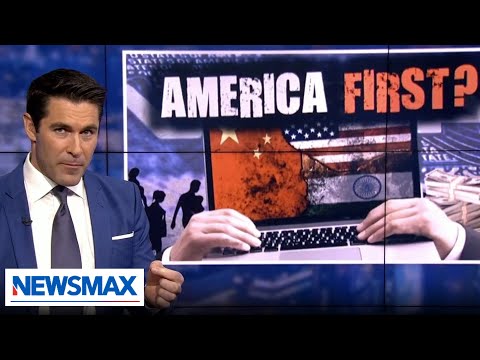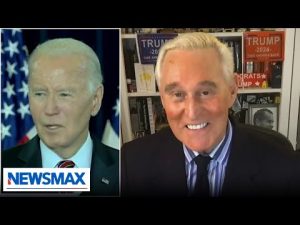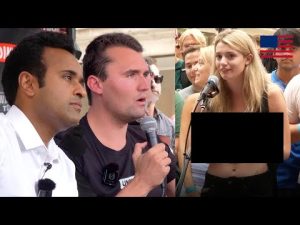In a political landscape filled with competing opinions, the growing debate over H-1B visas has emerged as a hot topic, igniting a firestorm among conservative circles. Recently, Shriram Krishnan, selected by Trump to advise the White House on artificial intelligence (AI), stirred the pot by advocating for the removal of caps on H-1B visas. This proposal suggests a constant influx of foreign labor, which many argue poses a threat to white-collar American jobs. Surprisingly, some notable figures like Elon Musk and Vivek Ramaswamy have rallied behind Krishnan, drawing sharp lines in the sand within the MAGA community.
Ramaswamy sparked heated discussions when he claimed that the U.S. is in a “state of mediocrity,” arguing that foreign workers are simply more skilled and hardworking. This perspective was met with immediate backlash from Trump’s voter base, who pointed out that promoting an endless flow of cheap foreign labor is hardly the “America First” mentality they support. In a swift reaction, Ramaswamy changed his tune, likening the current H-1B visa system to a broken model that needs to be replaced with one that prioritizes the best talent, rather than a lottery system that favors cheap labor.
As Americans grapple with rising costs and job insecurity, Trump’s more recent stances on immigration issues have been clouded by his focus on border control and illegal immigration. Although he has expressed a desire to support legal immigration, the uproar surrounding Krishnan’s recommendation poses a risk of alienating his base. Skeptics argue that ending the caps on H-1B visas would only further exacerbate a long-standing issue: the replacement of well-paying American jobs with cheaper overseas labor.
Elon Musk, initially a proponent of the broader H-1B program, later clarified that he meant to discuss bringing in only the top 0.1% of engineering talent. This shift shows the extent to which even advocates of the visa program are recognizing the potential for abuse inherent in the current system. Critics have pointed out numerous instances where companies exploit these visas to fill entry-level roles, undermining American workers. For example, large corporations, such as Fidelity, hiring for positions that should easily be filled by American talent shines a glaring light on the misuse of this program.
As the debate continues to unfold, the implications of endorsing or rejecting the proposed changes to the H-1B visa program carry substantial weight. America prides itself on its ability to attract talent from around the globe, but the reality is much more complex. While there are undeniable benefits to hiring a highly skilled foreign workforce, the program has been increasingly manipulated by corporations seeking to cut labor costs at the expense of American workers. Lawsuits have shown that companies like Apple and Facebook have engaged in practices that favor foreign hires over qualified Americans. As this story develops, the chorus of voices from both sides of the argument will only grow louder, making it clear that finding common ground on immigration will be no small feat.



